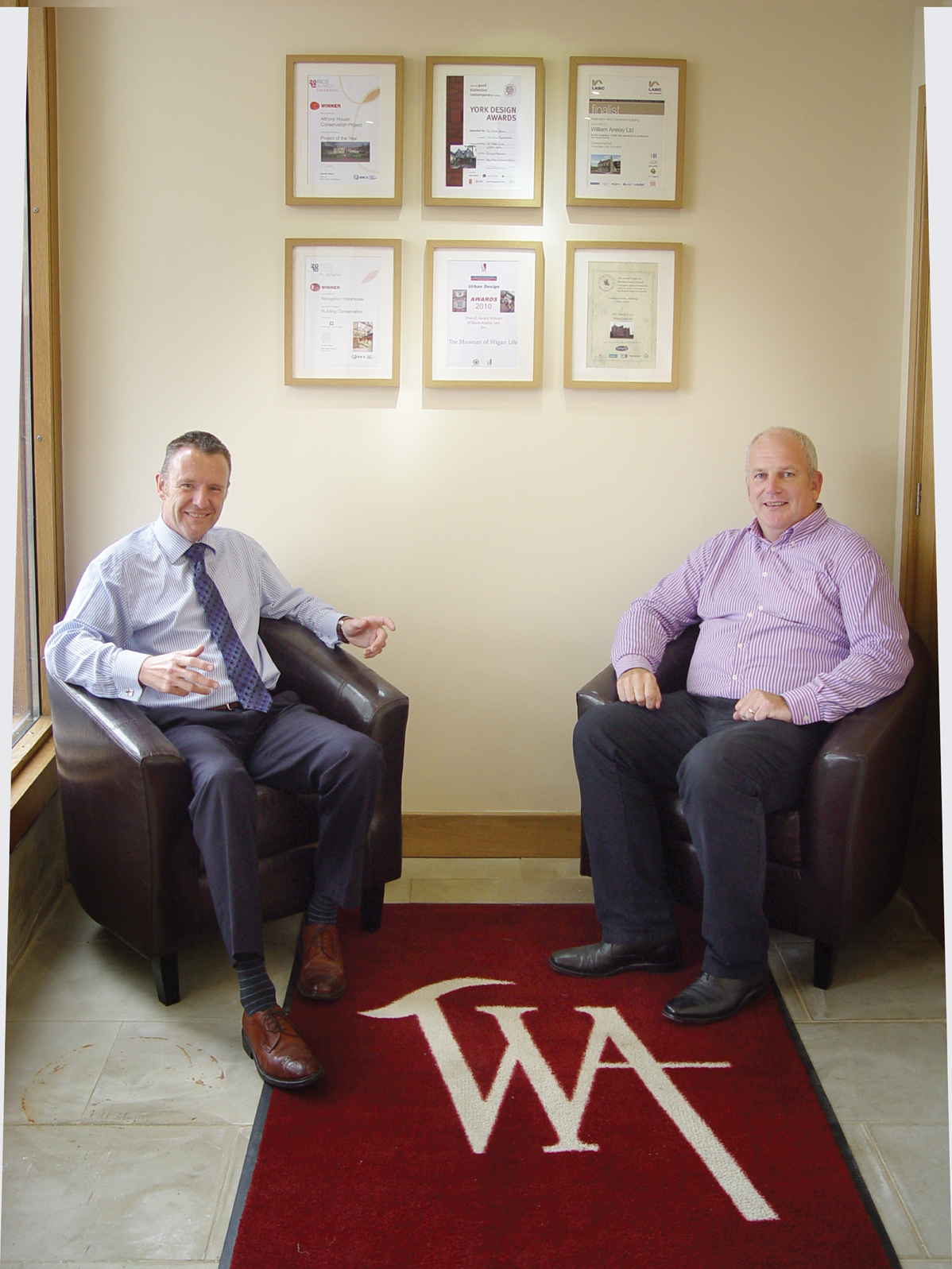William Anelay goes into Administration
William Anelay, headed by the eighth generation of the Anelay family (Charles) and laying claim to being the UK's oldest stone company with a provenance dating back to 1747, has given up attempts to reach a company voluntary arrangement with its creditors and has gone into Administration.
This year William Anelay has been on television with Hairy Biker Dave Myers as he launched his solo BBC2 Hairy Builders programme following the building restoration work of the company.
But on 8 September Julian Pitts and Bob Maxwell of Begbies Traynor in Leeds were appointed as joint Administrators. William Anelay has now ceased trading and 126 staff have been made redundant.
This does not, however, bring the stonemasonry side of the business to an end because it was floated off as a separate entity called Anelay Traditional Masonry established as a limited liability partnership in 2008. The partners include Charles Anelay and William Anelay Managing Director Tony Townend.
Anelay Traditional Masonry moved away from William Anelay's York premises and is now at a one-acre site in Crigglestone, West Yorkshire.
Other parts of the group were also separate companies – Lowery Roofing, Hare & Ransome Joinery, Anelay Traditional Masonry and Anelay Building & Conservation. Collectively they employ about 50 people and continue to trade.
William Anelay has undergone some changes in recent years. Tony Townend, who had been Operations Director, took over as Managing Director from Vernon Carter in 2012. Tony and Vernon had worked closely together since a management buy-out of the company in 2006. Charles Anelay was William Anelay's Chairman and Special Projects Director.
Charles Anelay said on the appointment of the Administrators on 8 September: “We have worked very hard to save the business and do the best for our creditors by proposing a CVA. We really believed that we had a good plan to get through our cash difficulties and were supported by our bank and HM Revenue & Customs.
“The last few weeks have been the worst of my life. We are hugely disappointed that it has come to this. We thank all our staff for their commitment and loyalty, apologise to those clients and creditors who have given their support and who will now lose out, and thank all past friends of the firm and members of the public who kindly gave their support.
“All I can hope is that at some point in the future people will look back at William Anelay Ltd and recognise 260 years of skilled craftsmanship which gave us the privilege to restore parts of our country’s architectural heritage with some amazing projects on some very special buildings which will be admired far into the future.”
In August William Anelay Ltd had announced it was entering crisis talks with creditors as a result of it having taken on projects outside its usual remit, which proved to be "financially and operationally difficult" (read the report of that here).
It proposed a company voluntary arrangement with creditors. Charles Anelay says there was a high level of support in favour of the proposals but the actions of a small number of suppliers had "eroded the confidence of certain key clients".
He says that the steps those suppliers took to protect their positions had had a "devastating effect" on the company's projected cash flow within the proposed arrangement. The CVA became unviable because some of the company's creditors destabilised the situation and some of its clients' reactions have meant expected cash flows that would have allowed creditors to be paid a certain percentage of what they were owed would not have been produced.
William Anelay Accounts for the year ending 30 June 2015 show a pre-tax profit of £493,000 on a turnover of £33.3million. In July, the current year's accounting period was extended to the end of this year.
At the time the CVA was proposed, William Anelay had 17 schemes on site, including those at York Mansion House, Bradford City Hall and Lancaster Castle.
After being appointed as joint Administrator, Julian Pitts said: "It is very sad to see the demise of such a historic Yorkshire family business. Unfortunately, William Anelay ran into cash flow difficulties following a period of expansion and problems with some complex projects. Despite attempts to secure a CVA, this did not prove viable and there was no alternative but to place the business into administration.
"We are now in discussions with various interested parties and are hopeful that it may prove possible to novate some of the company’s contracts to ensure that work can be completed with the minimum of disruption to clients."
William Anelay Ltd was founded in Doncaster, South Yorkshire, and moved to York In the early 1900s, partly because of a friendship between Thomas Anelay VI and architect Walter H Brierley who encouraged the business to get involved in many building opportunities as the city went through a period of expansion.

